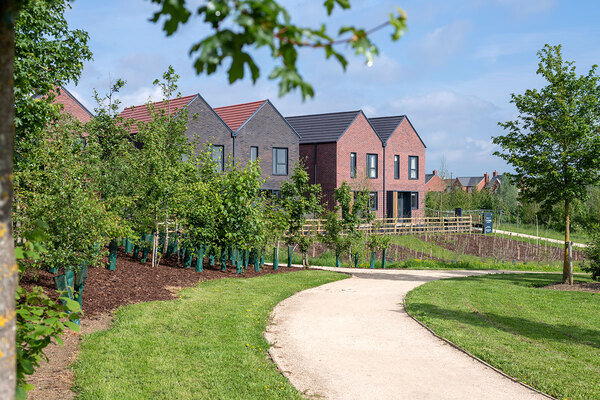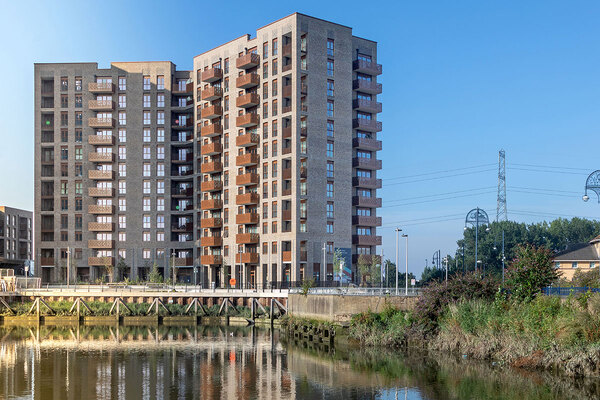House Proud hat trick
Inside Housing and the Chartered Institute of Housing’s House Proud campaign has achieved its three aims to become a hot election issue. Lydia Stockdale looks back at the campaign and explains why the fight must go on

Good news: all three of the House Proud campaign aims have been met.
There was never going to be a better time for Inside Housing and the Chartered Institute of Housing to make the case for housing to policy makers than in the run-up to a general election. We wanted 250 backers, housing featured in all three of the main political parties’ election manifestos and the sector fighting housing’s corner at every opportunity. With just a week to go before the nation goes to the polls, House Proud campaigners can proudly say: ‘We got the hat trick.’
House Proud made a promising start. Within a week of its January launch, housing spokespeople for the Labour, Conservative and Liberal Democrat parties all backed the campaign assuring us their manifestos would include a housing pledge - a promise they kept when they published those documents earlier this month.
We’ve also got the party leaders on board.
Now, to make sure the prime minister as of next Friday doesn’t forget the housing sector once he has settled into Number 10, we’ve written to each of the wannabe PMs reminding them of their pledges and enclosing a copy of our House Proud petition, signed by more 250 of you. Your accompanying messages demonstrate just how important housing is. We’ve also produced a House Proud booklet summarising the campaign and the key facts and figures, which is free with this issue.
‘It is vital that politicians of all political persuasions understand the importance of housing to the health, social and economic well-being of the country,’ writes an impassioned Alan Humphreys, group chief executive of Grand Union Housing Group.
David Orr, chief executive of the National Housing Federation, points out that, unlike health and education, housing policies rarely take centre stage. ‘If politicians really want to invest in health and education, create safe places and protect jobs, the first thing to do is to invest in housing. We must ensure that housing’s voice is loud and clear,’ he says.
Throughout the past four months Inside Housing has published detailed analysis of the benefits good housing delivers to all other social policy areas. Alongside each we published the ‘CIH says’, the institute’s definitive overview of housing’s contribution and a set of killer statistics, showing how much money investment in housing can save from public sector spending elsewhere. And we added hundreds of prospective MPs to our circulation to ensure they know just how important the housing sector’s work is.
When the Conservatives effectively fired the gun on next weeks’s election back in January with an announcement on health, we pointed out that when housing fails to perform its most basic function - keeping its inhabitants safe, warm and dry - it can cause or exacerbate some of the most common health conditions, circulatory, respiratory and mental disease among them.
Next, we moved on to education, quoting statistics from housing charity Shelter which revealed that 1.6 million children - around 13 per cent of the UK’s youngsters - live in overcrowded, temporary, dilapidated, damp or dangerous homes. The charity estimates that a quarter of children living in such conditions gain no GCSEs, compared with a tenth of those housed well.
Onto sustainability and we championed the fact that social homes are already 10 per cent more energy efficient on average than private sector homes, due in part to landlords’ decent homes improvements.
Then we demonstrated how housing providers have been working with local communities to tackle worklessness. Social landlords in England invest £45 million every year to tackle unemployment, benefiting more than 67,000 tenants annually, NHF research revealed.
Housing’s proactive response to population change, including our ageing society, came next. We also highlighted how housing providers are ideally placed to address the localism agenda being pursued in various ways by each of the three main political parties. Based in the heart of their communities, landlords know what’s happening on the ground - which last week brought us on to anti-social behaviour.
Landlords use a range of tools to tackle unacceptable behaviour - from noise abatement notices, to anti-social behaviour orders - and can do so as soon as it arises.
The support our campaign has received has been incredible. Every week our 80-strong House Proud Readers’ Panel reveals which election issues matter most to housing professionals. Readers responded in droves when we asked them to invent the housing policy they’d most like to see in the winning party’s manifesto. The most popular ‘dream policy’, about funding for retrofit, came from Jim Vine, head of UK housing policy and practice programme at the Building and Social Housing Foundation - we asked the prime minister himself if he would adopt it.
With just six days until the election and with our aims met, it’s time to draw the House Proud campaign to a close. But the CIH is determined to continue to keep up the momentum, pushing housing as a key political issue to the next government. And Inside Housing will support them all the way. The campaign may be over but it doesn’t end here. Keep on making the case for housing. Be House Proud.
The CIH says: stay House Proud
The House Proud campaign has given us an opportunity to shine the spotlight on the vital work of housing professionals.
Anyone who works in our sector knows that better housing and housing-related services can make a huge difference to people’s lives. That positive impact - whether on better health, improved educational performance, economic prosperity or the success, safety and wellbeing of neighbourhoods - is not often understood by everyone in government, the media and in wider society.
‘We are proud of the terrific achievements of housing professionals and it is vital that all this great work is not undone. The new government will need to make significant savings in public spending, but our mission will be to continue to champion the importance of housing work as a central plank of social policy.
‘The House Proud campaign has kick-started what will be a busy year for the CIH working with the new government to help it develop a vision for a fairer and more balanced housing system and to work towards solving the increasingly pressing housing crisis.
‘Thank you to our members and all those who have supported House Proud. Use the handy booklet enclosed with this issue when you meet your new MPs and local politicians and stay House Proud.’
Sarah Webb, chief executive of the Chartered Institute of Housing
Follow the leaders
Prime minister Gordon Brown, Labour:
‘I agree [with readers’ favourite House Proud policy] that retrofitting the existing housing stock is crucial if we are to meet our climate change targets. That is why the Labour government set out our warm homes, greener homes strategy in early March.’
David Cameron, leader of the Conservative Party
‘Yes [I support the campaign] - Conservatives have already signed up to the House Proud campaign, and we will be including housing pledges in our election manifesto. You can’t stress enough how much good quality housing matters.’
Nick Clegg, leader of the Liberal Democrats:
‘It’s a really important campaign, one I’m delighted to see attracting so much support, and our shadow housing minister, Sarah Teather, signed up some time ago. Housing is fundamental to the kind of society we live in - whether it’s fair or not.’
Killer statistics : Housing’s cross-sector benefits
Education
25 per cent of children in bad housing gain no GCSEs compared with around 10 per cent not living in bad housing
Health
Preventing one 16 to 18-year-old becoming homeless saves £1,467 from the average council’s temporary accomodation budget.*
Sustainability
Every £1 spent on energy efficient housing saves £0.42 in health costs
Worklessness
English housing associations spent £209.5 million between 2003 and 2008 on almost 900 work and training initiatives
Anti-social behaviour
Early intervention by housing management staff resolves about 75 per cent of ASB cases








